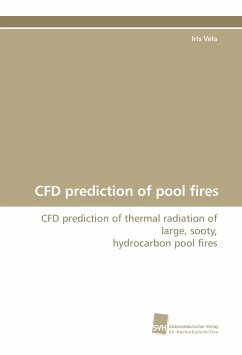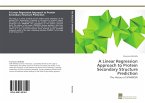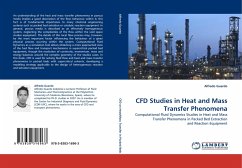Computational Fluid Dynamics (CFD) simulations of large-scale JP-4 pool fires in calm and cross-wind conditions were performed to predict emission temperatures, surface emissive power, and irradiances. CFD simulations were done in a one million cell computation mesh by using the Scale Adaptive Simulation and Large Eddy Simulation including flamelet models with 20-112 species and 60-800 chemical reactions. This work presents three new ways to predict surface emissive power by CFD. To simulate the surface emissive power a four-step discontinuity function consisting of a temperature dependent effective absorption coefficient of the dissipative structures (reaction zones, hot spots and soot parcels) and air was developed. Instantaneous and time averaged thermograms were used to determine the probability density functions of the emission surface temperatures and the surface emissive power. CFD simulations showed how the wind influenced the flame length, flame tilt, flame drag, flame temperatures, surface emissive power, and irradiances. Using these CFD simulations the thermal radiation from large pool fires can be more accurately estimated.








